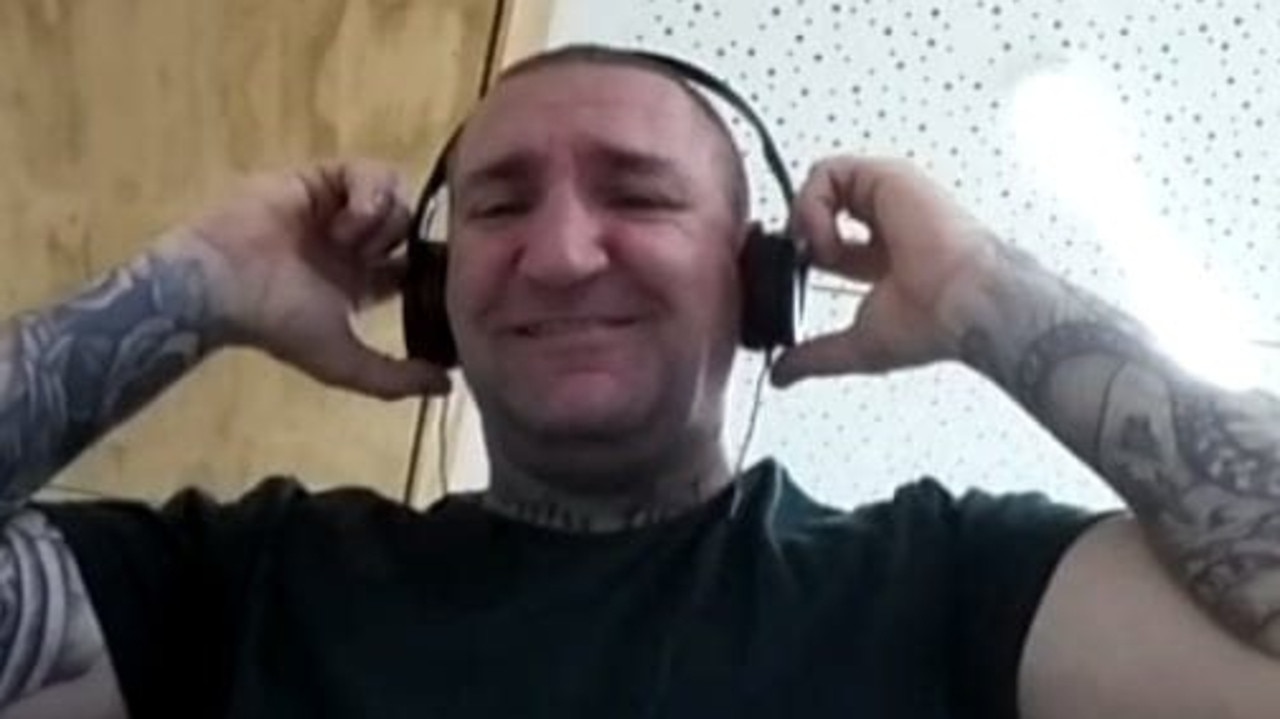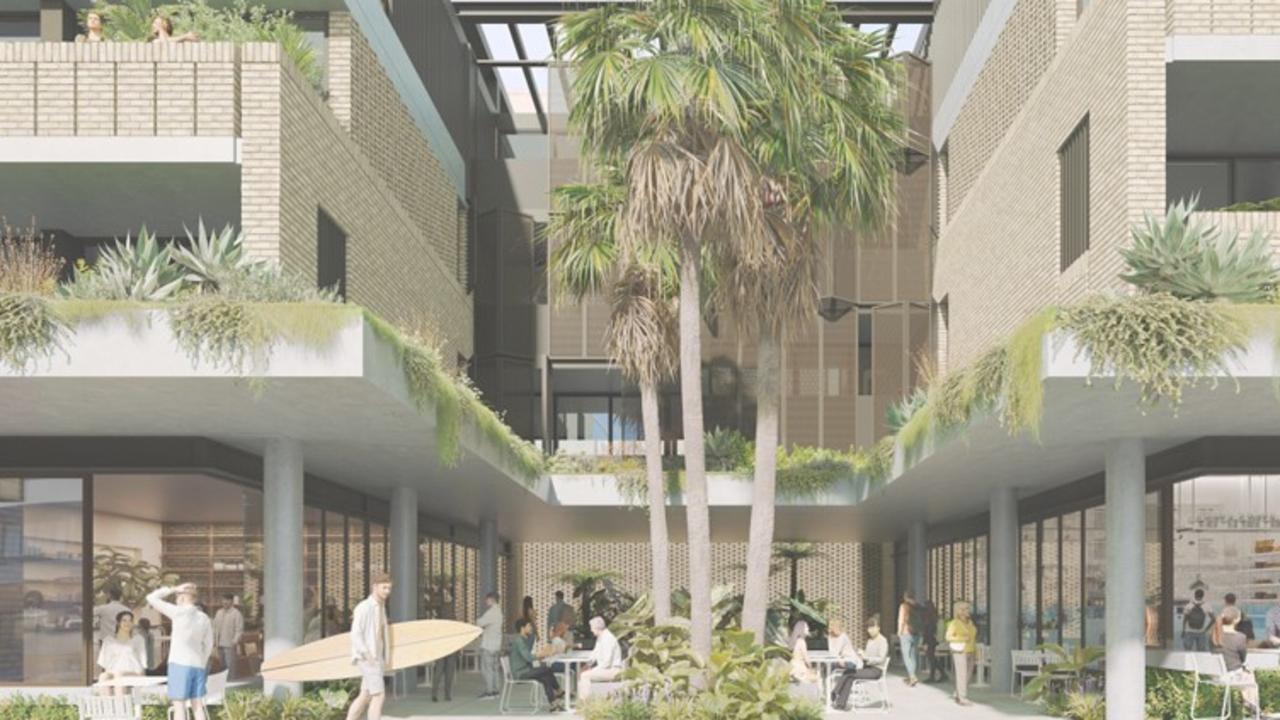Kids with muscular dystrophy unable to access life saving drugs, therapies
Their children have a terminal illness and there are cutting edge new drugs that could help, but Australia’s tough regulatory system is forcing parents overseas, or frustratingly standing by watching their children go without the help they need.
NSW
Don't miss out on the headlines from NSW. Followed categories will be added to My News.
Devastated parents are being forced to watch their children slowly die while red tape blocks access to new therapies and drugs.
Children born with Duchenne muscular dystrophy, a genetic condition that causes muscle weakness, are usually wheelchair bound by age 12 and only live to their late teens to mid-20s. The condition mostly affects boys.
A parliamentary inquiry into the approval processes for new drugs and novel medical technologies in Australia has heard countless stories of the frustration parents are facing trying to access promising drugs that are only available overseas.
The inquiry was set up by the Federal Health Minister Greg Hunt to examine if the approval processes could be better.
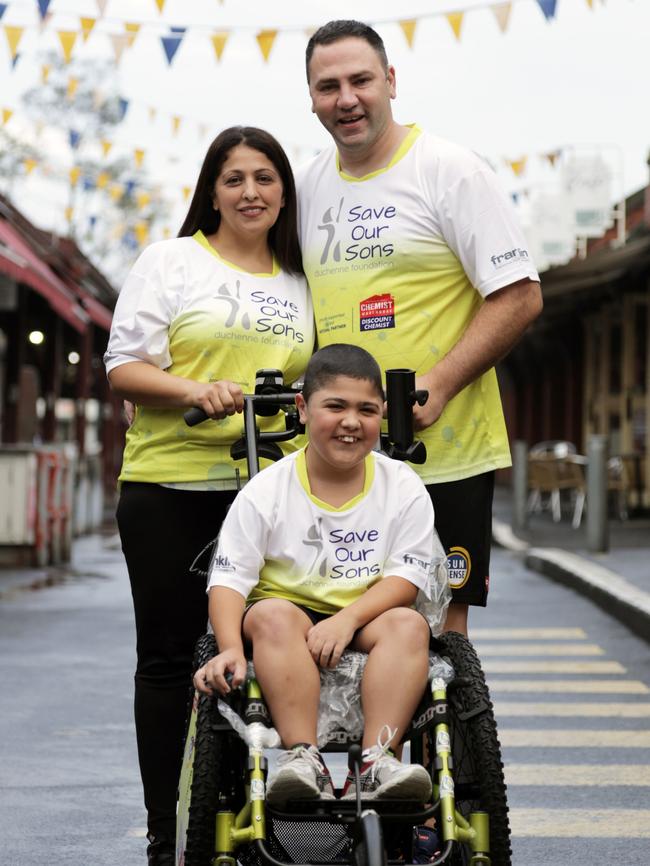
Emilio is now 16 and in a wheelchair. He cannot access drugs and gene therapies available in other countries and claims the Therapeutic Goods Administration is so slow and strict that drug companies often bypass Australia for clinical trials.
This includes cutting-edge gene therapy, which has been given fast track approval in the USA.
“We are desperate, we need current drugs to slow it down and we need to get this gene therapy across,” Mr Eid said.
“Cut the red tape and support the hospitals to run the trials. I’m a parent, my son is going to die, imagine swallowing that pill?”
Wetherill Park’s Vanessa Brown had no idea she carried the gene for DMD until her son Riley was diagnosed at age four in 2016. Her younger son Tarek, 5, also has DMD.
“While new drugs and treatments are being developed overseas, it is extremely difficult to gain access here in Australia. This simply feels unfair for our children,” she wrote in her submission.
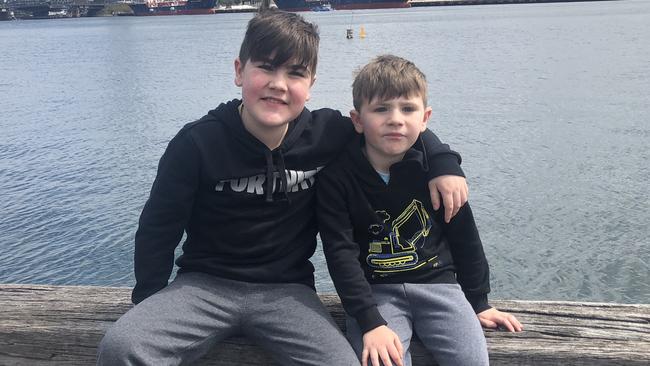
Riley, now nine, who is losing his muscle strength quickly, will be excluded due to age.
“The trial is for age four to seven and there is criteria as to where they are physically,” she said.
“They need to walk a certain distance and stand up from the floor and Riley can’t do those things anymore so it excludes him from the trial.
“We are hopeful we will be able to Tarek on there but there is a 48 week placebo with the trial, so he could be getting weekly infusions with the placebo.
“We’d do it, it helps with the research and after those 48 weeks he will be on the drug (anyway) but that leaves us in the position where we have two boys (but) we have treatment for one — not Riley.
“As a parent that is heartbreaking. Riley is very aware of the changes and differences from him to the other kids are school.”
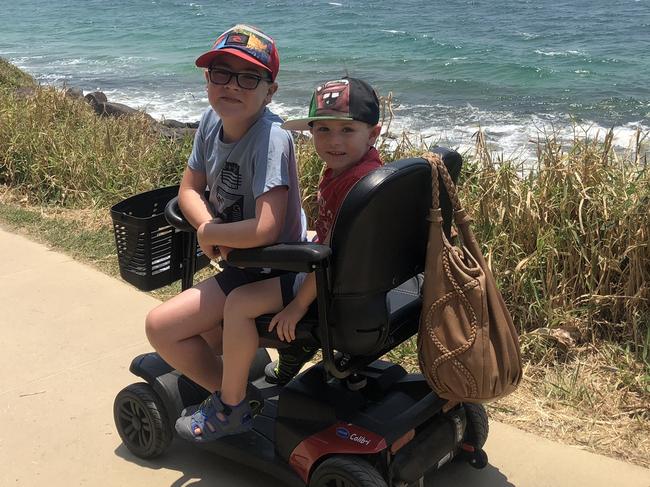
Other parents like Patricia McPhail have travelled abroad to access drugs for their children.
Translarna works on one in five children and slows the progression. It allows children to walk longer and increases survivability. The drug has been approved in most European countries, so Mrs McPhail travelled to Italy with her son Oliver, then five, in 2016.
“In Europe Translarna was given conditional approval in some countries because it worked in slowing down the progression of the disease,” she said.
“It meant you could talk longer, you’d be independent longer, you would delay progress. The only option I had was to look overseas and a lot of families are willing to relocate overseas.
“I have Italian parents so through my citizenship, I can get it by descent and I was able to access medication overseas.”
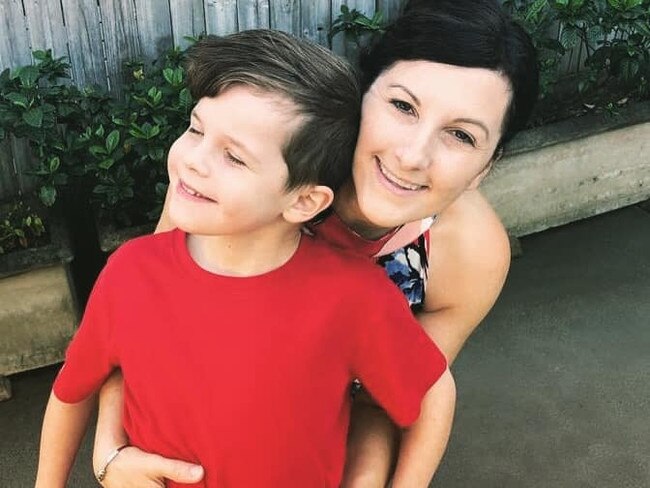
“Oliver and I travelled back and forth 12 times in three years and the drug cost nothing because of my Italian heritage, but flights were $60,000 all up.”
Translarna is not available in Australia but it worked immediately on Oliver.
“Straight away he improved within one month. It would take us 35 minutes to walk to school and it is a seven minute walk but, after one month, he was walking there in 13 minutes,” she said.
“It is available in the UK, Germany, Finland, and France but, otherwise, you are really stuffed. I was extremely lucky to have Italian citizenship.”
Originally published as Kids with muscular dystrophy unable to access life saving drugs, therapies

